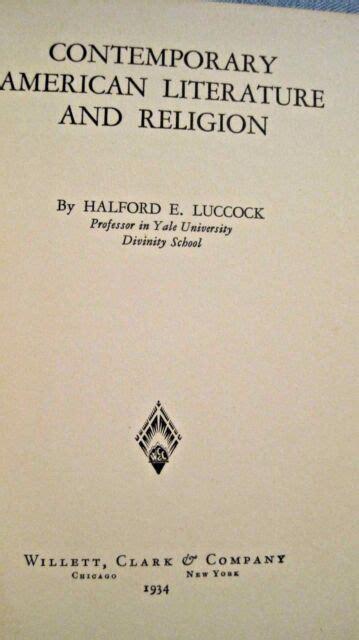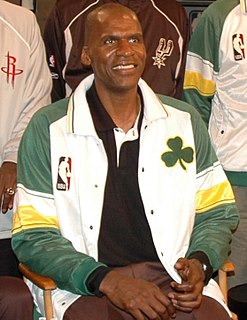Top 1200 Criticism And Praise Quotes & Sayings - Page 6
Explore popular Criticism And Praise quotes.
Last updated on December 21, 2024.
When we express our needs indirectly through the use of evaluations, interpretations, and images, others are likely to hear criticism. When people hear anything that sounds like criticism, they tend to invest their energy in self-defense or counterattack. It's important that when we address somebody that we're clear what we want back.
If the mystical lovers of the arts, who consider all criticism dissection and all dissection destruction of enjoyment, thought logically, an exclamation like "Goodness alive!" would be the best criticism of the most deserving work of art. There are critiques which say nothing but that, only they do so more extensively.
Self-criticism is not "love," and it is certainly not indifferent. It's a form of hatred. And when I name that, when I see it for what it is (raw and uncomfortable and saddening), when I refuse to sugar-coat self criticism, judgment, agitation, and constantly trying to improve myself, then I'm one quantum leap closer to freedom.
If you're remarkable, then it's likely that some people won't like you. That's part of the definition of remarkable. Nobody gets unanimous praise - ever. The best the timid can hope for is to be unnoticed. Criticism comes to those who stand out.
Playing it safe. Following the rules. They seem like the best ways to avoid failure. Alas, that pattern is awfully dangerous. The current marketing “rules” will ultimately lead to failure. In a crowded marketplace, fitting in is failing. In a busy marketplace, not standing out is the same as being invisible.
Many people value criticism in the early stage of a relationship, but become allergic to it over time. Remember this: No one can survive in a marriage (at least not happily) if they feel more judged than admired. Your partner won't make use of your constructive criticism if there's not a surrounding climate of admiration and respect.
Expressions of sharp and even violent criticism of religion and the church have been welcomed, for they usually imply sincerity of thought. If caustic criticism of religious institutions and practices is irreligious, then Amos, Isaiah, and Jesus were very irreligious men. In fact, that is exactly what many of their contemporaries took them to be.
Also, when we did "Smallville," we didn't have an opportunity to interact with people who watched the show. And see what they had to say and listen to criticism and listen to praise at the same time. So a lot of this is a new experience and it's very interesting and rewarding for us. I think we get honest feedback. You get hate. You get a lot of love as well. And I'm actually very curious what people think of the show. For us, it's been a passion project of ours, and an incredibly challenging show to make.
I think where the criticism of videogames come from is where videogames are just Xeroxes of films, and when you get a film adaptation of that game, you've just Xeroxed something twice. I think that's where a lot of the criticism comes from - there are ultra-violent games that are already based on a million films.
Common criticism of the Internet is that it is dominated by the crude, the uninformed, the immature, the smug, the untalented, the repetitious, the pathetic, the hostile, the deluded, the sefl-righteous, and the shrill. This criticism overlooks the fact that the Internet also offers - for the savvy individual who knows where to look - the tasteless and borderline insane.
It's the difference between someone who loves you more than anything in the world giving you criticism and getting it from some bitter stranger on the Internet. What my dad said to me was the kind of criticism where I was like, "Oh, my God, I'm on the wrong track." I'm so grateful to him for doing that. He was such a no-nonsense guy in that sense.
Anything that is beautiful is beautiful just as it is. Praise forms no part of its beauty, since praise makes things neither better nor worse. This applies even more to what it commonly called beautiful: natural objects, for example, or works of art. True beauty has no need of anything beyond itself.
Criticism will need an injection of humility that is, a recognition of its role as ancillary to the arts, needed only occasionally in a temporary capacity. Since the critic exists only for introducing and explaining, he must be readily intelligible; he has no special vocabulary: criticism is in no way a science or a system.
But the most obvious fact about praise — whether of God or anything — strangely escaped me. I thought of it in terms of compliment, approval, or the giving of honor. I had never noticed that all enjoyment spontaneously overflows into praise unless (sometimes even if) shyness or the fear of boring others is deliberately brought in to check it.
And if these mountains had eyes, they would wake to find two strangers in their fences, standing in admiration as a breathing red pours its tinge upon earth's shore. These mountains, which have seen untold sunrises, long to thunder praise but stand reverent, silent so that man's weak praise should be given God's attention.
When I teach criticism, the first thing I say, and this sometimes pisses off younger - I mean, students, is that, opinions are the least part of criticism. We've all had the experience of going with a friend to a movie or a concert and you leave the theater and one of you loved it and one of you hated it, and that doesn't mean that one of you is an idiot. That's the way things work.
We praise Thee, Lord, of all the earth, for love and joy, for light and mirth, for every charm of sense and right, and blessings boundless as Thy might.... But most we praise the love that gave thine own dear Son to seek and save, for joy all other joys excelling, for purest light and life indwelling.
One of my constant reminders was, "End practice on a happy note." I wanted the boys to want to come out to practice, and I wanted them to get a certain amount of pleasure out of basketball. It's a game. It should be fun. So I always tried to counterbalance any criticism in practice with a bit of praise. I wanted my players to feel that the worst punishment I could give them was to deny them the privilege of practicing. If they did not want to practice, I did not want them there.
You gotta deal with a lot of people, the naysayers... but I've always been the guy who kinda just smiles and laughs at it. I use it as constructive criticism to be honest. Whether they're intentionally trying to be kind of spiteful or not, it's constructive criticism because you can't say there's always truth to it but there's definitely something.
Excellent flatterers welcome attentive audiences; mighty potentates enjoy public praise. In the most pleasing situation, a flatterer would genuinely admire the flatteree, please that person, please other present company, be pleased to stagger rivals, and get something out of it: applause, promotion, a favor, reciprocal praise. Flattery is as social as a banquet.
My father was extremely loving to me and funny and wise and understanding, and at other times extremely demanding, critical, calculating, exacting. When you're a young woman, I think you want to please a lot, so maybe you accept more of the criticism than you would as an older person. But criticism can be very wounding. It certainly was to me.
The visual is sorely undervalued in modern scholarship. Art history has attained only a fraction of the conceptual sophistication of literary criticism. Drunk with self-love, criticism has hugely overestimated the centrality of language to western culture. It has failed to see the electrifying sign language of images.
[On The Waste Land:] Various critics have done me the honor to interpret the poem in terms of criticism of the contemporary world, have considered it, indeed, as an important bit of social criticism. To me it was only the relief of a personal and wholly insignificant grouse against life; it is just a piece of rhythmical grumbling.
Young children are unlikely to have their self-esteem strengthened from excessive praise or flattery. On the contrary, it may raise some doubts in children; many children can see through flattery and may even dismiss an adult who heaps on praise as a poor source of support-one who is not very believable.
Praise and Prayer PRAISE is devotion fit for mighty minds, The diff'ring world's agreeing sacrifice; Where Heaven divided faiths united finds: But Prayer in various discord upward flies. For Prayer the ocean is where diversely Men steer their course, each to a sev'ral coast; Where all our interests so discordant be That half beg winds by which the rest are lost. By Penitence when we ourselves forsake, 'Tis but in wise design on piteous Heaven; In Praise we nobly give what God may take, And are, without a beggar's blush, forgiven.


























































